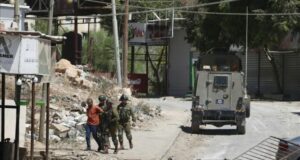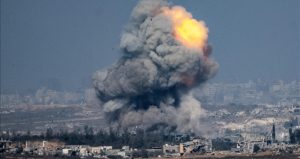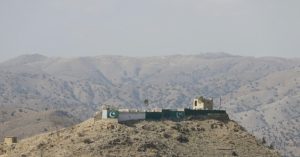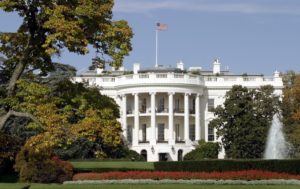
Islamic Council of Victoria secretary says ‘counter-productive’ policy could ‘push disaffected young people into the hands of radical groups’.(Potho: Worldbulletin)
Melbourne, 10 Shawwal 1436/26 July 2015 (MINA) – Muslim leaders have criticized the Australian government’s de-radicalization policy, saying it focuses on law enforcement measures and risks contributing to negative stereotypes about Islam.
Kuranda Seyit, secretary of the Islamic Council of Victoria and a leading voice in Victoria state’s Muslim community, told Anadolu Agency on Thursday that the policy is “punitive” and could potentially alienate disenchanted youth, Anadolu Agency quoted by Mi’raj Islamic News Agency (MINA) as reporting.
“It sends the message, we don’t want you, which could push disaffected young people into the hands of radical groups,” Seyit said. “From that perspective, it’s counter-productive. It’s also counter-productive in that it doesn’t give people any option for rehabilitation or reintegration.”
Since last year, Australia has been concerned about its nationals joining or supporting groups fighting in the Middle East and the impact it could have on the country in the case of their return.
Also Read: Pakistan Condemns Israeli Settler Attacks in West Bank, Al-Aqsa Storming
Last month, Prime Minister Tony Abbott introduced a controversial law under which Australian dual nationals suspected of involvement in “terrorism” can be stripped of citizenship.
Australia has already banned its citizens from traveling to Mosul and Syria’s Raqqa province, unless they have a “legitimate purpose” for being there — a measure civil rights groups have criticized for placing the burden of proof on an individual.
Seyit’s comments came a day after the president of the powerful, Sydney-based Lebanese Muslim Association harshly condemned the government’s de-radicalization approach, dismissing it as “pointless” and “a mess”.
In an opinion piece Wednesday, Samier Dandan had described the policy as outdated and simplistic, saying it emphasized law enforcement instead of focusing on social factors, as advised by international academics.
Also Read: China Criticizes US-Drafted UN Gaza Resolution as Vague, Abstains from Vote
He slammed a recent government driven “discussion paper,” saying it referred to radicalization “as though it was a result of Islamic ideology,” and criticized the new citizenship-stripping legislation.
Seyit, a teacher at an Islamic school, expressed agreement with much of what Dandan said, despite stopping short of referring to the de-radicalization policy as pointless.
He supported Dandan’s criticism of the language used in the recent Countering Violent Extremism summit discussion paper.
“It perpetuates stereotypes and the assumption that Islam is intrinsically linked to some sort of extremist ideology,” he said, his exasperation apparent. “It didn’t mention the generic problem of extremism which exists in white supremacist and Neo Nazi groups and other religious ideologies.”
Also Read: Former Bangladesh PM Sheikh Hasina Sentenced to Death
Seyit told Anadolu Agency that the language used by the Abbott government feeds into the narrative of a division in society, which “leads to the emergence of [anti-Islamic] groups like Reclaim Australia.”
“Everybody now thinks there is an epidemic of terrorists threatening every Australian, which presents a huge danger for social cohesion,” he warned.
Seyit also voiced his concern that the government isn’t seeking broad-based feedback from Australia’s Muslim community, referring to a meeting he had attended with the Attorney General George Brandis last year as purely “tokenism”.
“It wasn’t a two-way dialogue. We were being spoken at,” he said.
Also Read: Pakistan Declares State of War After Car Bomb Incident
Seyit underlined that Australia’s Islamic community wants “an approach that is preventative and rehabilitative rather than this sort of punitive approach the government is currently taking.”
Also on Thursday, Abbott released Australia’s Counter-Terrorism Strategy, a comprehensive long-term national counter-terrorism blueprint.
A statement from the Prime Minister’s office stated: “Australians currently face the most significant threat from terrorism in our nation’s history.”
It reminded how the National Terrorism Public Alert level had been raised to high in September, since when the country has experienced two attacks — with six others allegedly being disrupted — and charges against 23 people as a result of counter-terrorism operations.
Also Read: Jakarta Hosts Gala Dinner for World Peace Forum Delegates
“There are now over 120 Australians fighting in Syria and Iraq. Approximately 160 Australians actively support extremist groups through financing and recruitment,” it added. “The threat of terrorism is real and continues to grow and evolve.”
A spokesperson for the minister assisting the prime minister on counter terrorism, Michael Keenan, replied to Anadolu Agency’s request for a response to Dandan’s opinion piece.
“These remarks have been taken out of context and are incorrect. The discussion paper referred to was a description of Australia’s threat environment,” the response said. “This acknowledged that Islamist inspired extremists, fuelled by the conflicts in Syria and Iraq, remain the dominant terrorist threat to Australia.”
It added that the discussion paper had noted that “these extremists have a distorted and militant interpretation of Islam, which they use to justify violence in the pursuit of political, religious and ideological ambitions.”
Also Read: Indonesian Minister Urges Synergy Between Wasathiyah Islam and Chinese Wisdom
The response also said the government “recognises there is no one path to radicalisation and the motivations and drivers are unique to each individual.”(P004/R04)
Mi’raj Islamic News Agency (MINA)
Also Read: New Delhi Covered in Toxic Smog: Residents Say ‘We Can Hardly Breathe’





























 Mina Indonesia
Mina Indonesia Mina Arabic
Mina Arabic